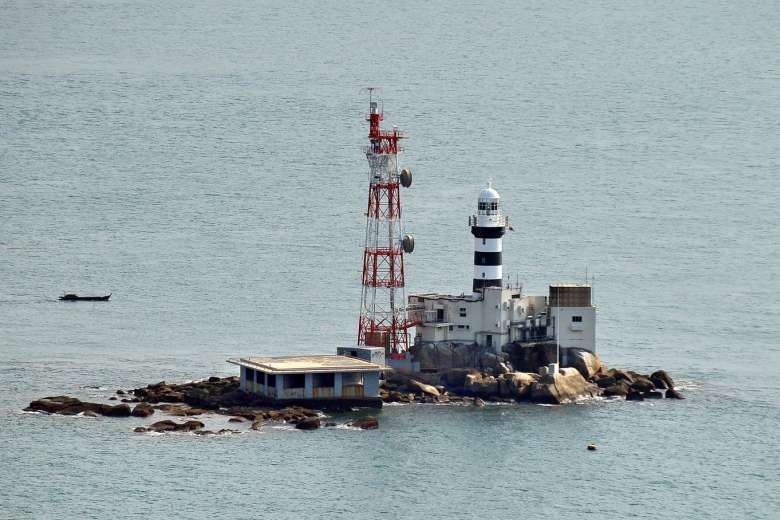Malaysia withdraws Pedra Branca case; Singapore 'happy to agree', says Vivian Balakrishnan
Sign up now: Get ST's newsletters delivered to your inbox

Singapore's Ministry of Foreign Affairs said that Malaysia had informed the International Court of Justice that it would stop the proceedings that it had initiated earlier.
PHOTO: ST FILE
Follow topic:
SINGAPORE - Malaysia has withdrawn its applications to revise and to interpret a 2008 judgment by the International Court of Justice (ICJ) that awarded sovereignty of Pedra Branca to Singapore.
In a statement on Wednesday (May 30), Singapore's Ministry of Foreign Affairs said that Malaysia had informed the ICJ on Monday (May 28) that it would stop the proceedings that it had initiated earlier. In response, on Tuesday, Singapore told the ICJ that it agreed with Malaysia's request for discontinuance.
Prior to that, Malaysia's Solicitor General had written to inform Singapore's Attorney-General of Malaysia's intention, and Singapore replied to convey its agreement, MFA said.
In letters dated 29 May 2018, the ICJ informed both countries that it had placed on record the discontinuance, and directed that the cases be removed from the court's list.
Public hearings on both cases were scheduled for next month: June 11-13 and 18 for the first, and June 18-19 and 21-22 for the second.
Minister for Foreign Affairs Vivian Balakrishnan said Singapore was confident of its case, and the correctness of the original ICJ decision.
"When Malaysia requested to discontinue the cases, without them being argued, we were happy to agree. Both Malaysia and Singapore had gone through the due legal process and put this matter to rest," he said in a statement.
Malaysia's withdrawal means that it can no longer challenge Singapore's sovereignty of Pedra Branca, as under the ICJ's Statute, an application for revision must be made within 10 years of the judgment. That 10-year window has now lapsed, as the judgment was issued on May 23, 2008.
Malaysia had filed its application to overturn it on Feb 2, 2017.
The court had ruled that Pedra Branca belonged to Singapore, a decision that resolved a territorial dispute which began in 1979.
The small island of Pedra Branca - also known as Pulau Batu Puteh - houses the Horsburgh Lighthouse, and is located about 40km east of Singapore's main island.
Besides Pedra Branca, the ICJ had also ruled at the same time on the sovereignty over two other maritime features: the Middle Rocks and South Ledge, near Pedra Branca. It said Middle Rocks belongs to Malaysia, but it did not make a definitive ruling on South Ledge, saying it belongs to whoever owns the territorial waters it sits in.
In its application for revision, Malaysia cited three new documents discovered in the British Archives to argue its point that Singapore's officials at the highest levels did not consider that Singapore had acquired sovereignty over Pedra Branca from Johor in the years following 1953.
The ICJ had considered correspondence from 1953 between Singapore's colonial officials and Johor as being of central importance in its 2008 judgment.
Johor's top official had written in a 1953 letter that "the Johor government does not claim ownership of Pedra Branca". The court found this showed that while Johor had the original title, "as of 1953, Johor understood that it did not have sovereignty over Pedra Branca".
Malaysia based its application on Article 61 of the ICJ's Statute, which states that an application to revise a judgment may be made when there is discovery of a fact which would be a "decisive factor" and was not known at the time of judgment.
Singapore filed its rebuttal on May 24 last year, contending that the documents Malaysia relied on do not satisfy the criteria under which it applied for a revision.
On June 30, Malaysia submitted a second application asking the ICJ to declare the waters around Pedra Branca to be Malaysian waters - and, by extension, that South Ledge belongs to Malaysia.
On Oct 30 last year, Singapore filed its rebuttal to Malaysia's request for interpretation.
Singapore's legal team for the cases is helmed by four people, three of whom were in the original 2007 team that argued the country's case: former deputy prime minister and law minister S. Jayakumar, Ambassador-at-Large Tommy Koh and former chief justice Chan Sek Keong. The fourth is Attorney-General Lucien Wong.
On Wednesday, Dr Balakrishnan thanked the legal team "for their meticulous and comprehensive preparations".
"The team had put forward clear and compelling arguments against the submissions advanced by Malaysia," he said.

